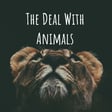
95. Sensory Pollution with Dr. Brett Seymoure and Dr. Jennifer Phillips (S10)
Episode 2 of Series 10: Anthropogenic Behavior Change Transcript
In this episode we delve into how sensory pollution, particularly artificial light, affects wildlife behavior, focusing on insects, spiders, birds, and predator-prey interactions. We discuss the consequences of light pollution on ecosystems, research efforts, and strategies for mitigating the effects through legislation and urban planning.
Guests: Dr. Brett Seymour, an associate professor at the University of Texas at El Paso, his research interests include how animals interact with their visual environment and how light pollution disrupts natural behaviors, physiology and ecosystem services in arthropods and their predators!
Dr. Jennifer Phillips is an assistant professor at Washington State University. Jenny's research focuses on animal behavior communication and the effects of human activity on wildlife, especially passerine birds, specifically, she's interested in how functional traits are affected by landscapes and sensory pollution, and whether changes in these traits lead to population and community level ecological consequences.
Book Recommendations: The Darkness Manifesto: On Light Pollution, Night Ecology, and the Ancient Rhythms that Sustain Life by Johan Eklöf and Wildscape: Trilling Chipmunks, Beckoning Blooms, Salty Butterflies, and other Sensory Wonders of Nature by Nancy Lawson
Guest Profiles and Book Recommendations
What to start your own podcast in he Animal Advocacy or Animal Welfare Space? Check out my Podcast Mentoring Services!
